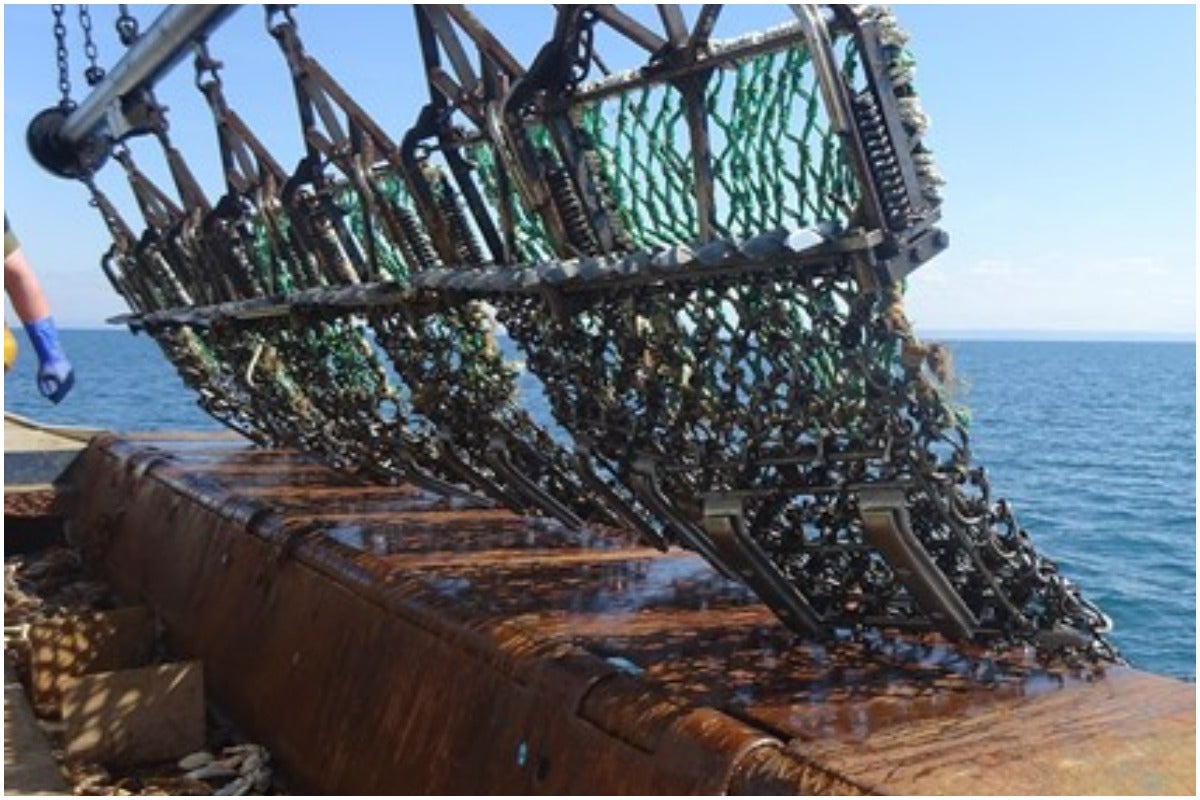Scallop dredging kit change could reduce impact on environment
Current practice can damage marine ecosystems, with organisms on the sea floor being routinely disrupted.

Your support helps us to tell the story
From reproductive rights to climate change to Big Tech, The Independent is on the ground when the story is developing. Whether it's investigating the financials of Elon Musk's pro-Trump PAC or producing our latest documentary, 'The A Word', which shines a light on the American women fighting for reproductive rights, we know how important it is to parse out the facts from the messaging.
At such a critical moment in US history, we need reporters on the ground. Your donation allows us to keep sending journalists to speak to both sides of the story.
The Independent is trusted by Americans across the entire political spectrum. And unlike many other quality news outlets, we choose not to lock Americans out of our reporting and analysis with paywalls. We believe quality journalism should be available to everyone, paid for by those who can afford it.
Your support makes all the difference.A slight change to kit used for scallop dredging has shown potential to reduce the damage caused to the seabed during commercial fishing expeditions.
Scallop dredges are heavy-duty metal framed nets which are pulled over the seabed.
They can damage ecosystems in the sea, with organisms on the sea floor being routinely disrupted.
Because of this, scallop dredging is banned in Scotland’s marine protected areas.
But a modification to a gear that lifts the steel bags used for catching scallops looks like it may help limit damage caused during dredging.
Scientists from the Low Impact Scallop Innovation Gear project, led by Heriot-Watt University, fitted “skids” to the bottom of standard spring-toothed scallop dredges and monitored them during trials with commercial scallop fisheries in Scotland and Wales.
They found the skid, which lifts the metal bags a mere 10cm off the seabed, helped reduce damage to bottom-dwelling species and fauna.
The research also discovered this slight alteration to the gear increased the catch of king scallops by an average of 15%.
Bycatch – fish or other animals that fishermen do not want such as undersized scallops, crabs and starfish – which is often repeatedly caught and returned to the sea in commercial expeditions was more variable, scientists found.
They said further modifications to the kit, such as increasing the size of the metal rings, along with implementation of skids could reduce this bycatch further.
Due to the metal skids adding weight to the boats, the commercial fisheries involved in the trials closely monitored the amount of fuel consumed during each expedition.
But they reported no changes between the two dredge types, likely due to the reduction in drag during travel.
Scientists said using the metal skids may even help lower the Co2 emissions created when scallop dredging if an alternative material to steel was used to construct the bags.
Dr Marija Sciberras, assistant professor in fisheries at Heriot-Watt University, led the study.
She said adopting technical gear changes, such as the skid dredges, would be “a big step forward in the evolution of sustainable management and lower impact of scallop dredging”.
She added: “Our study suggests that skid dredges are a promising start to developing more environmentally sound fishing gear that is also profitable economically for the industry, yielding a higher number of scallops and reducing replacement costs of belly bags from excessive wear and tear on the seabed.”
Michel Kaiser, who co-wrote the paper and is a professor of fisheries conservation, said the study shows “simple, practical modifications have significant potential in reducing impacts on target stocks and the environment in the scallop dredging sector”.
He added: “However, to be truly effective, potential technical interventions such as these have to be considered alongside effective fisheries regulatory systems that promote harvesting efficiency and appropriate controls at sea.”
The project was funded with £250,000 by the UK Seafood Innovation Fund, administered by the Centre for Environment, Fisheries and Aquaculture Science on behalf of the Department for Environment, Food and Rural Affairs.
The programme encourages sustainable and innovative ideas to bring about seafood security and new partnerships across seafood and technology sectors.